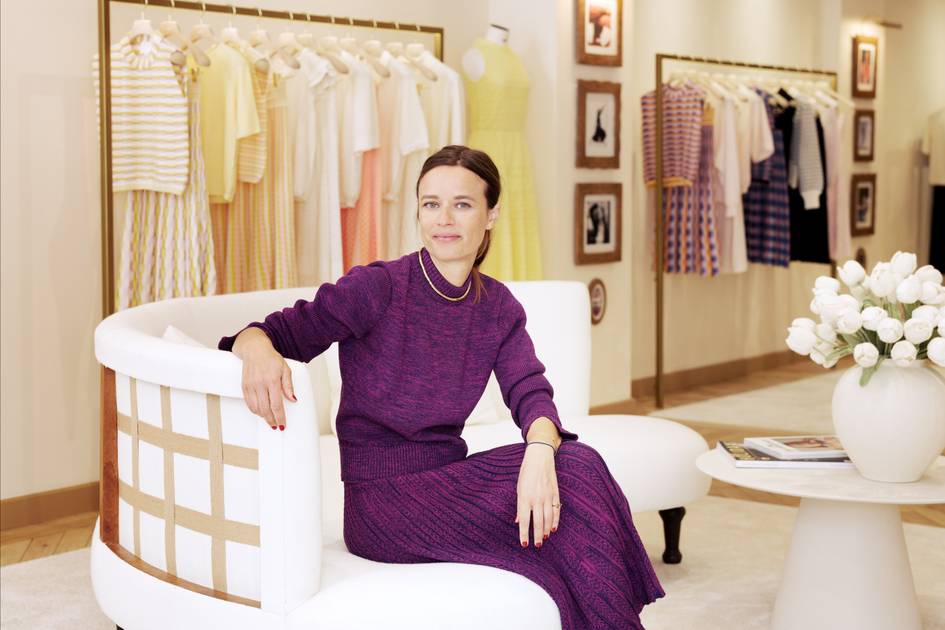India is one of the fastest growing luxury watch markets: H. Moser & Cie. CEO
Earlier this month, H. Moser & Cie., the independent Swiss watchmaker for nearly 200 years, opened its first standalone boutique in India. Located at City of Time by Ethos in Gurugram, the newest boutique is the sixth standalone H. Moser & Cie. boutique globally, following openings in Shanghai, Beijing, Hong Kong, Menlo Park, and Seoul.
Launched in partnership with Ethos Ltd, the store is designed as an experiential destination showcasing boutique-exclusive timepieces such as the Streamliner Tourbillon Skeleton Boutique Edition, limited to only 17 pieces worldwide.
In a Zoom interview with Lounge, Edouard Meylan, the chief executive of H. Moser & Cie., talked about the importance of the India market and the future of haute horlogerie. Edited excerpts:
H. Moser & Cie. is a relatively small brand. We make 4,000 watches, so we want quality over quantity. It's difficult to have too many doors to cover a big market like India, so we rather have a few points of sales in two locations with high visibility. Opening a boutique here (in Gurugram) is obviously a way for us to bring the universe of H. Moser & Cie to the customers in a central point of destination. It's a strategy we use in certain big markets like China, and it works very well for us.
We see the growth. I mean, it's in the top 15 in the world, one of the fastest growing markets at the moment. Huge, passionate community of watch collectors, very knowledgeable. We see a lot of passion for our world. I think it's just the beginning. That's why it's great to come and visit, to meet many of them. I think there's huge potential in India. And that's why you see so many brands putting more and more efforts in India, like us opening a boutique here.
Well, to be honest, it's really Pranav's (Pranav Saboo, CEO, Ethos Ltd) idea. He fell in love with our category, with independent brands, and wanted to bring them to the market. We believe he resonated early with a lot of discussions, and at some point, he convinced us, and I think his vision was right. I think the India market is really going through a transformation.
So what you find here is what you would find if you go to our Seoul, Hong Kong or Shanghai boutique. At every store, you will find identical design and same products. It's important to us. We don't tailor for certain tastes. We believe the brand is what it is. If you want something that is much more in line with certain other traditions or tastes, then there are other brands. But we are very strict about it. We don't adapt to the customers. It's the customers that adapt to the brand.
Majority is masculine, but more and more women buy those watches, or even watches that are quite unisex. A lot of entrepreneurs, and I think there are many in India, and that's probably part of the success of H. Moser & Cie here. You need to buy a Moser, you need to understand. If you know, you know.
When you are born in watchmaking, you cannot leave it. Whenever you try to leave it, it takes you closer back. So yes, I studied microengineering, but that's probably the closest engineering you have from watchmaking. We actually studied watchmaking mechanisms as part of our studies. So I was already a little bit into it. Production, processes, optimisations, all things that are related to watchmaking. So I was not far away from one another. In my first job, I was consulting (with PwC). That was my attempt to escape. One of my first projects ended up being in watchmaking. And then I was back into it.
I love the product. That's the core of the idea of creating and bringing innovation and creativity into a very special product that I can actually wear myself. That's part of it.
The second aspect that really excites me and drives me every day is the idea and ambition of building a brand. So something that moves beyond that actual product. Something that brings people together behind values, a vision and a philosophy.
Yeah, I think people understand much more about what's behind a watch and appreciate the true, traditional watchmaking and the people behind it. That has been at the core of the growth of independent watchmaking in recent years.
I think this education helped people go beyond the actual logos. For many years, people were buying if they wanted a certain brand because that represents 80% of what they are. And now they go beyond that and understand the intrinsic value of what watchmakers do, the artistic aspect, the value of the human beings behind it. There's a completely different game today which helps us tremendously.
I create watches that I wear myself. Today, I'm wearing two watches. One is an Endeavor with an enamel dial. Vibrant and modern at the same time, even though it's traditional. On the other wrist, I have a more sporty watch, which is this Streamliner Skeleton. It's a watch that is comfortable to wear because it's an integrated silk bracelet. It allows you to, we call it “beach to tuxedo". You can go out and swim with it and, at the same time, you can wear a suit like I'm wearing today and wear this watch and it fits perfectly.
I personally value the work that goes behind it, especially when it comes to research, development and innovation. And I think I can understand and value that part. How many years and how many people had to work and how different it is from the others—I think it's a lot about the level of the details and the finishing, and not all the things that you can see.
I think that's what makes a watch extraordinary—those small details that you discover three months after you bought it, and you're still wearing and discovering those very fine, small elements.
I think that's the beauty of what we do. That's why you find watches costing $100 or $100,000; they still give the time the same way, and sometimes even the cheapest is the most accurate. What makes the very expensive one so special are those small details.
I think it's the core, it's the base, it's the roots of our industry. We should never forget it but embrace and preserve it. It's very easy to move towards new technologies, and forget about the past. Respect your tradition, but live in the moment, and embrace the future. But don't forget to respect where you come from, and preserve it.
I think there are different types of luxury. For me, the ultimate luxury is very close to art, and that's what we do. Art is something where signature is almost insignificant, it's on the side. What really talks is the product. It's the finishing, it's the artistic traits that you find in the product. And that's why we felt that it would be almost an insult to sign our products on the dial, which is so beautiful. And for me, it's important to put effort into creating a product that people can associate and recognise, rather than having to put my logo on it.
It has to continue to preserve itself. In terms of craftsmanship, tradition, at the same time embrace new technology in terms of communication. But even sometimes in terms of optimising production. So we're in a world where today everybody talks about AI and how it could influence creativity, how to meet new customers. I think what made Swiss traditional watchmaking survive over the years is its ability to adapt, but at the same time remain true to its roots. As long as we can do that, I think we can go fast.
Manish Mishra is a Delhi-based writer and content creator.
You may also like...
Diddy's Legal Troubles & Racketeering Trial

Music mogul Sean 'Diddy' Combs was acquitted of sex trafficking and racketeering charges but convicted on transportation...
Thomas Partey Faces Rape & Sexual Assault Charges

Former Arsenal midfielder Thomas Partey has been formally charged with multiple counts of rape and sexual assault by UK ...
Nigeria Universities Changes Admission Policies

JAMB has clarified its admission policies, rectifying a student's status, reiterating the necessity of its Central Admis...
Ghana's Economic Reforms & Gold Sector Initiatives

Ghana is undertaking a comprehensive economic overhaul with President John Dramani Mahama's 24-Hour Economy and Accelera...
WAFCON 2024 African Women's Football Tournament

The 2024 Women's Africa Cup of Nations opened with thrilling matches, seeing Nigeria's Super Falcons secure a dominant 3...
Emergence & Dynamics of Nigeria's ADC Coalition

A new opposition coalition, led by the African Democratic Congress (ADC), is emerging to challenge President Bola Ahmed ...
Demise of Olubadan of Ibadanland
Oba Owolabi Olakulehin, the 43rd Olubadan of Ibadanland, has died at 90, concluding a life of distinguished service in t...
Death of Nigerian Goalkeeping Legend Peter Rufai

Nigerian football mourns the death of legendary Super Eagles goalkeeper Peter Rufai, who passed away at 61. Known as 'Do...





